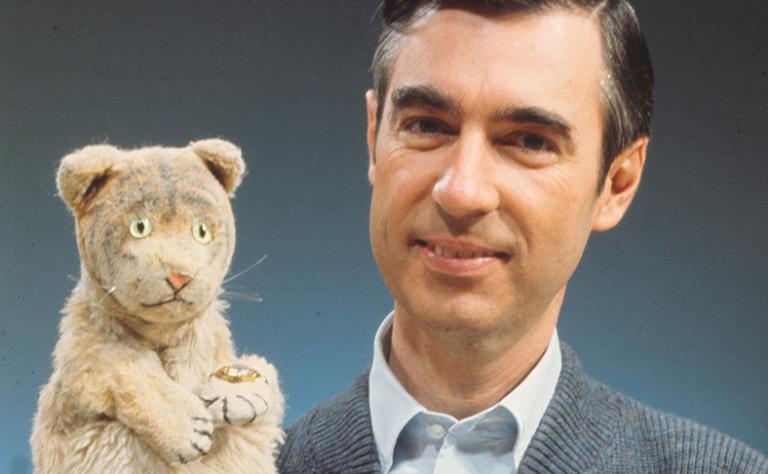
He was vulnerable (in a way). Neighbor makes the case that Mr. Rogers’ puppet alter-ego was the watch-wearing Daniel Striped Tiger—sweet, shy and deeply vulnerable. Rogers admits in the movie that it’s far easier to let Daniel express his fears than he, as a grown man, to admit to them. But he, unlike most of us, still admits to them. And through Daniel, he gave the children he spoke to permission to express their own fears and doubts.
Funny that, in our social media age where we all share so much of ourselves, rarely do we share our vulnerability. We post our smiling vacation pictures and brag about our kids and express our deep political convictions in sometimes strident, shrill terms. But I think that often it’s our vulnerabilities, not our strengths, that make people gravitate toward us and allow them to trust us. I think that that’s part of what Paul meant in 2 Corinthians 12, when he told us that God’s power is made perfect in weakness. Rogers’ knew that, too. Our weaknesses open the door to fellowship. And that’s where strength is found.
He was devout. Rogers was an ordained minister, and throughout Neighbor we hear how Mister Rogers’ Neighborhood was his pulpit. He preached from his fake television house and told his young viewers that they were loved just as they were—but they still needed to learn and grow, too. And that brings us to, perhaps, Rogers’ most powerful, enduring message.
He believed in us all. That feels like a strong statement, but I don’t think it’s a stretch. Rogers believed in us all. He believed that all of us—young and old—were worthy of love. We were lovable.













